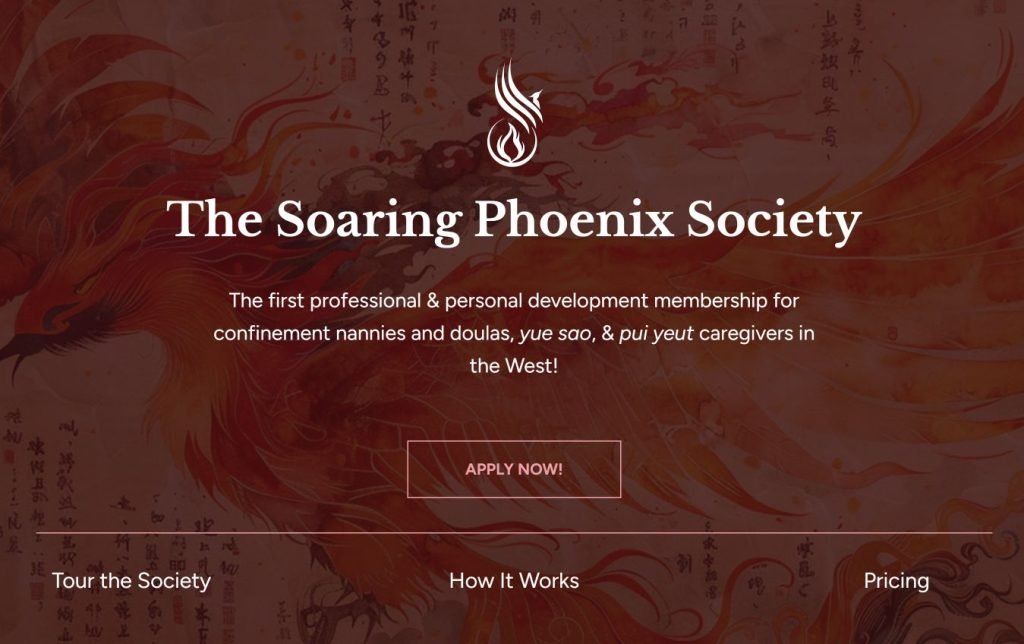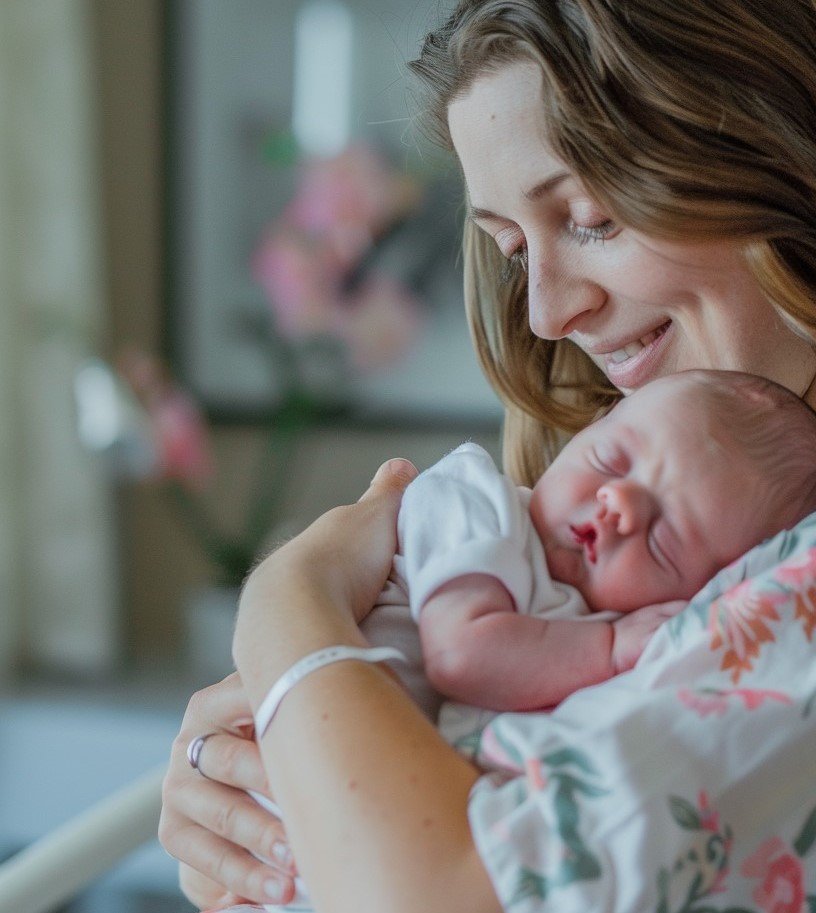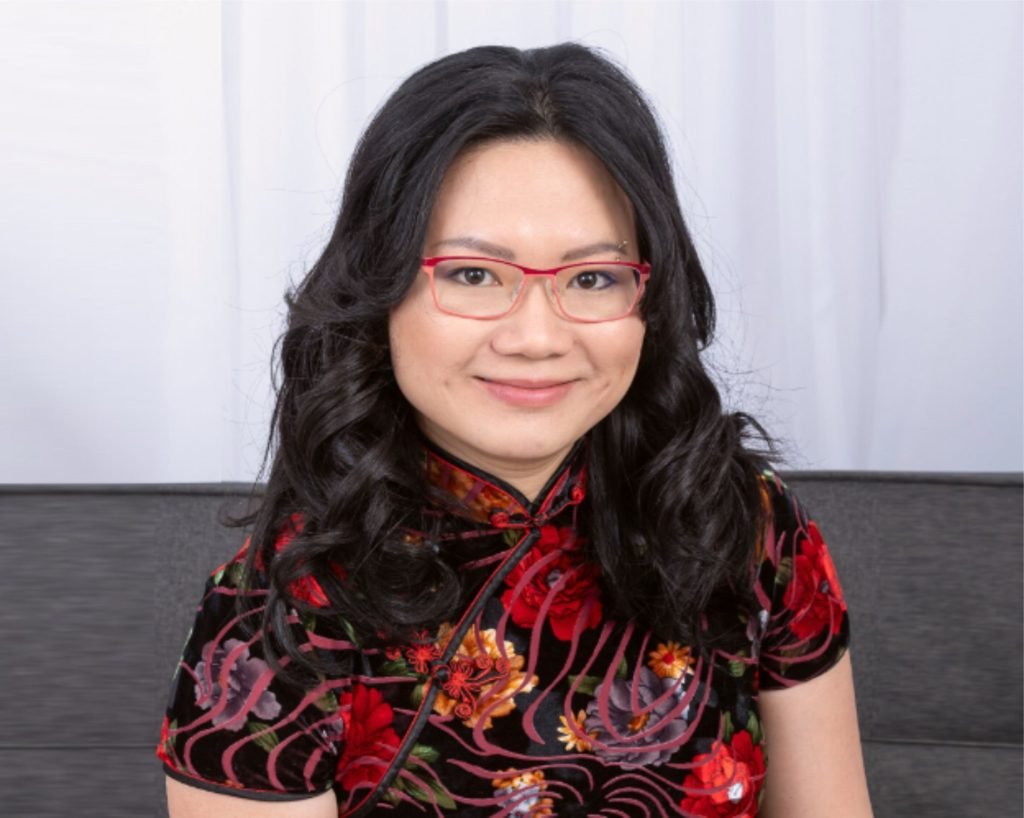Pui Yuet, a Cantonese term, and Yue Sao, a Mandarin term, are synonymous with Chinese postpartum Confinement caregivers. This is a vocation deeply ingrained in Chinese culture. These caregivers are also called Confinement nannies, and they usually follow a comprehensive care regimen designed to support new mothers during the first month after giving birth..
Pui Yuet and Yue Sao: Traditional Chinese After-Birth Caregivers for A New Mother’s Recovery
Confinement care, known as Zuo Yue Zi in Mandarin, is also knows as ‘sitting the month’. This is a traditional Chinese postpartum practice that’s meant to help a new mum heal after giving birth. And there are variations in this practice among many East Asian cultures.
These Chinese postpartum Confinement caregivers, or Confinement nannies, are usually mothers themselves. Many of them are also grandmothers! But in our modern world, many of their adult kids likely live far away and are unable to visit home often.
So, as empty nesters now, these ladies look towards another vocation where they can put their parenting and family raising skills to good use and pass on their wisdom to younger mothers and families.
The Role of Confinement Nannies
Many Confinement nannies have done the hard work of raising their own babies. So, they’re able to offer similar services as a night nanny, including newborn care, for new moms and their family members who want overnight help.
A Pui Yuet and Yue Sao, often a seasoned mother herself, brings a compassionate and knowledgeable presence into the home, guiding new mothers through the complexities of early motherhood. Many of them have also experienced Confinement themselves when they had their babies.
This makes them well-positioned to help new moms and other family members with the Chinese Confinement practice. Many are also trained in traditional Confinement practices, postnatal care, and baby care.
These caregivers also provide invaluable support to new mothers by handling household chores, preparing Chinese herbs, infant care, and assisting with breastfeeding. Their support allows new mothers to focus on their recovery and bonding with their newborn baby.
A Pui Yuet or Yue Sao Confinement nanny usually has long working hours. They’re commonly hired to live in with new families for the entire Confinement month.
But to ensure that the Confinement nannies are not taken advantage of, it’s important that roles and responsibilities are outlined appropriately and boundaries on work hours are set.
While these postpartum Confinement caregivers are here to help a new mother with her health and provide support, it’s important that their own health is looked after. How else can our caregivers offer the best Zuo Yue Zi experience to new mothers?
This is why Dr Kristal Lau and her partner, Elaine Kopinga of Obaatan Women in Newport Beach, California, are also supporting Confinement nannies in West with a professional and personal development program called The Soaring Phoenix Society.

Combining Traditional Practices with Modern Needs
The Pui Yuet and Yue Sao caregivers of today are more than traditional Confinement caregivers. They’re adapting to Western culture and the needs of modern moms.
This allows them to offer a blend of holistic practices and contemporary postnatal care. This combination ensures that new mothers receive comprehensive postpartum care that addresses both their physical and emotional well-being.
The benefits of having a Pui Yuet or Yue Sao are multifaceted:
- Physically, she helps manage the healing process, from assisting with breastfeeding to ensuring the mother receives nutritious, specially prepared meals that promote recovery. Her expertise in basic herbal remedies and massages can also significantly ease discomforts associated with postpartum recovery.
- Emotionally, a Pui Yuet or Yue Sao provides invaluable support. The transition to motherhood can be overwhelming, marked by sleepless nights and hormonal changes. A Pui Yuet’s or Yue Sao’s presence alleviates some of these stresses by offering reliable care and empathy, allowing the mother to rest and regain her strength with peace of mind.
- Moreover, this traditional caretaker educates and empowers new mothers, sharing tips and techniques that have been passed down through generations. This education can be crucial in building a mother’s confidence and helping her to develop her parenting style.

Benefits of Confinement Services
Confinement services, including the work of confinement nannies and night nurses, offer numerous benefits to new mothers. The services help manage the postpartum period by providing structured support that includes nutritious meals, infant care, and emotional support. They play a necessary role in helping mothers adapt to their new roles while ensuring a smooth transition during the postpartum period.
The Importance of Postpartum Care
Postpartum care is essential for the physical and emotional recovery of new mothers. The care includes a focus on nutritious meals, rest, and traditional practices that support the body’s natural healing process. Confinement care helps in managing common postpartum challenges, such as milk production and physical recovery, and promotes overall well-being during the early days of motherhood.
In summary, Confinement nannies can offer a comprehensive approach to postpartum care that combines traditional Chinese practices with modern support services. By integrating Confinement nanny services with contemporary maternity care, new mothers around the world can benefit from a well-rounded support system during their postpartum period.
The Role of Confinement Services in East Asia
In East Asia, Confinement in the form of Confinement centres (also known as postnatal retreats in the West) and Confinement nanny agencies are well-established practices that reflects the region’s cultural values and approach to postpartum care.
There are also many pre-packaged Confinement herbs and meal services to complete the Confinement experience. Many mothers and their families opt for one or more of these services for convenience and peace of mind.
The services are designed to support new mothers and their families through the various stages of postpartum recovery, ensuring that they receive the care and attention they need. Many are willing to pay top dollars for such services.
Addressing Emotional and Physical Needs

Dr. Kristal Lau, a respected figure in holistic postpartum care, has successfully integrated time-honored methods into her modern practice, offering a unique blend of old and new that benefits today’s mothers.
Dr. Lau’s approach emphasizes the importance of recovery in a nurturing environment, where the physical and emotional well-being of the mother is prioritized alongside the well-being of her spouse or non-birthing partner and the rest of her immediate family.
Recognizing the effectiveness of Pui Yuet and Yue Sao services, she loves working alongside them to better support a new mom’s recovery times, enhance maternal bonding, and reduce the severity of postpartum depression. Her tailored services include:
- Confinement and postpartum planning and preparation for mothers and their families who live in the West
- an upcoming virtual Confinement and Postpartum Wellness platform with traditional Chinese medicine support
- Maternal Wellness programs rooted in European Lifestyle Medicine approach
Moreover, Dr. Lau educates and empowers new mothers by sharing knowledge about postpartum care that has been refined over generations. She also provides hands-on training in Confinement preparation, advises on breastfeeding, and offers emotional support through one-on-one consultations.
The thorough care guarantees mothers recover physically and are emotionally equipped to welcome the challenges of new motherhood and adapting to the new dynamic of a growing family.
Frequently Asked Questions (FAQs) about Pui Yuet
How much does Pui Yuet cost?
The cost of Pui Yuet services can vary widely depending on location, the level of service, and the duration of care. In Hong Kong, for example, hiring a Confinement nanny can range from HKD 10,000 to HKD 20,000 per month. In the UK, it can cost about GBP 5,000.00 or more for a 30-day service.
The price also depends on how many newborn babies the Confinement nanny is caring for; one baby, twins, or triplets. The total cost may also include additional services such as postnatal massage and belly wrapping assistance. Many of these Confinement maternity services packages include the night nanny experience – it’s typical for a confinement nanny to perform overnight tasks.
It’s essential for new parents to discuss their specific needs and budget with service providers to get a clear estimate. Parents can opt for shorter durations such as a 7-day or 14-day package instead of the full 30 days.
What is Zuo Yue Zi?
Zuo Yue Zi, also known as “sitting the month,” is a traditional Chinese postpartum practice that emphasizes rest and recovery for new mothers. This practice is also rooted in traditional Chinese medicine and there are differences between Chinese medicine principles and cultural taboos.
During this period, new mothers are encouraged to avoid cold meals and engage in practices that support physical and emotional healing. The aim of Zuo Yue Zi is to help new mothers regain their strength, and preserve their health after the Confinement period is over and as they age.
What does ‘Pui’ in Pui Yuet mean?
In the context of Pui Yuet, “Pui” (陪) in Cantonese means “to accompany” or “to support.” The term emphasizes the supportive role of confinement nannies and the comprehensive care provided to new mothers during their postpartum period.
What is the 30-day rule after birth?
The 30-day rule is a traditional practice that suggests new mothers should rest and avoid certain activities for 30 days after giving birth. The period is believed to be necessary for physical recovery and healing. During that time, new mothers typically focus on rest, nutrition, and avoiding cold foods.
How long should a mother stay home after birth?
The duration of Confinement can vary based on cultural practices, family traditions, and personal preferences. Traditionally, the Confinement period lasts for about 30 to 40 days but some may extend the period based on individual needs and recovery. The goal is to provide ample time for physical and emotional healing.
Can I have cold food and cold drinks after giving birth?
Traditional Chinese postpartum care advises against consuming anything cold after giving birth. It is believed that cold meals and drinks can interfere with the body’s natural healing processes. Instead, new mothers are encouraged to eat warm, nourishing foods that support recovery and promote overall well-being.
